Boiled eggs taste great with salt, but Nitamago offers a more distinctive and savory flavor. Traditional Japanese seasonings infuse the egg whites with a rich taste that complements the yolks perfectly. This dish is also known as "Ajitama" or "Ramen Eggs."
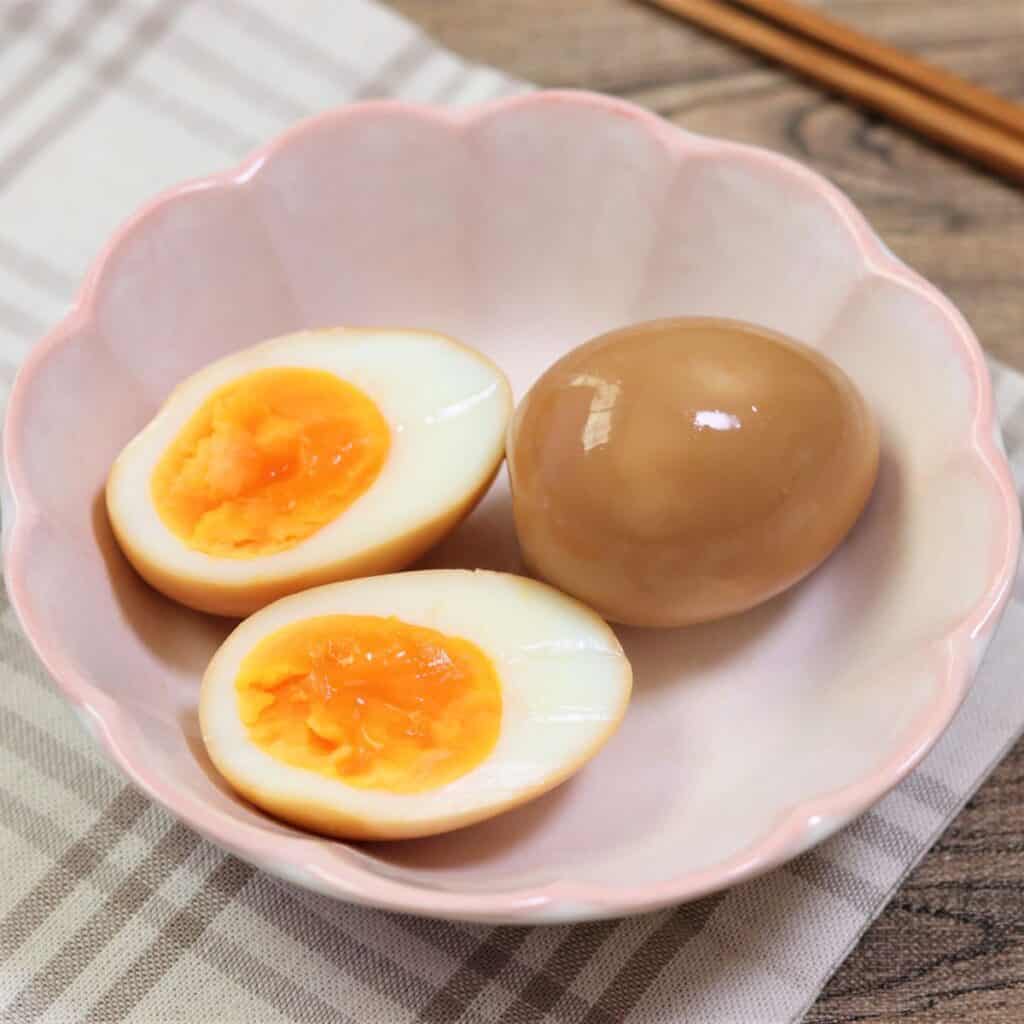
Jump to:
What is Nitamago?
Nitamago is a dish made by boiling eggs and then soaking them in traditional Japanese seasonings such as sake, mirin, and soy sauce. "Ni" comes from the verb "Niru," which means to boil or simmer, and "tamago" refers to eggs. Soaking the eggs in the seasoned liquid allows them to absorb the flavors, resulting in a subtly sweet and richly savory taste.
You can cook the eggs to your preferred level of doneness, but in Japan, they are typically soft-boiled. Soft-boiled eggs have a moist, creamy texture that many people enjoy. Of course, hard-boiled eggs are also delicious if you prefer a firmer texture.
This dish can be eaten on its own, served with rice, or used as a topping for ramen. It is often called "ajitsuke tamago" or simply "ajitama," both of which refer to the same thing: marinated eggs. There is essentially no difference between these and nitamago.
Boiling time guide to achieve your preferred egg consistency
Let's make sure we know how to cook eggs just the way you like them. You can adjust their firmness by changing the boiling time, heat level, and the amount of water.
The following guide shows how the consistency of eggs changes over time when they are taken straight from the refrigerator and boiled over medium heat in plenty of water. Use this as a reference to achieve your desired texture.
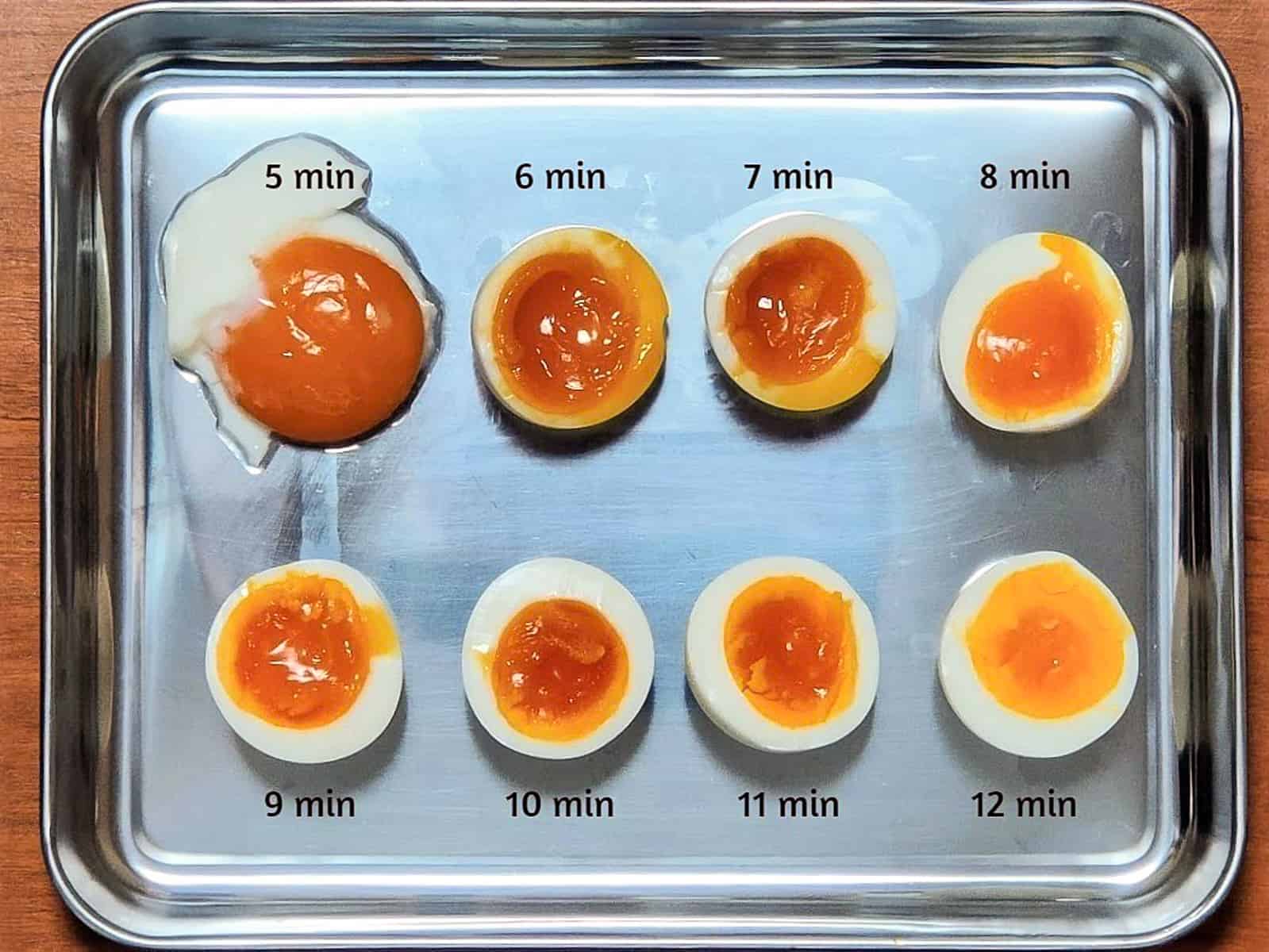
5 mins: The egg white begins to set.
6 mins: The outer part of the yolk slightly solidifies but still flows when cut.
7 mins: The egg becomes soft-boiled. The yolk is slightly firm and flows out less, while the white is set but still tender.
8 mins: The egg remains soft-boiled. The center of the yolk is runny, but it hardly flows out when cut.
9 mins: The yolk is less runny but still moist.
10 mins: The outer part of the yolk is hard-boiled, but the center is still moist.
11 mins: The yolk is quite set.
12 mins: The egg is mostly hard-boiled. The yolk is almost fully cooked.
The best way to marinate nitamago
After cooking the eggs, soak them in the seasoning mixture to let the flavors penetrate. Then, the nitamago is ready.
For marinating, I highly recommend using a Ziploc bag. You can use a container like Tupperware, but you will need a lot more marinade to fully submerge the eggs. With a Ziploc, a small amount of marinade is enough to evenly coat the eggs.
Another advantage of using a Ziploc bag is that you can squeeze out the excess air and seal it tightly. This helps keep the eggs in close contact with the marinade, allowing them to absorb the flavor more quickly. As a general guideline, let the eggs marinate for about two hours—but you can adjust the time to your taste. The longer they marinate, the stronger the flavor will be.
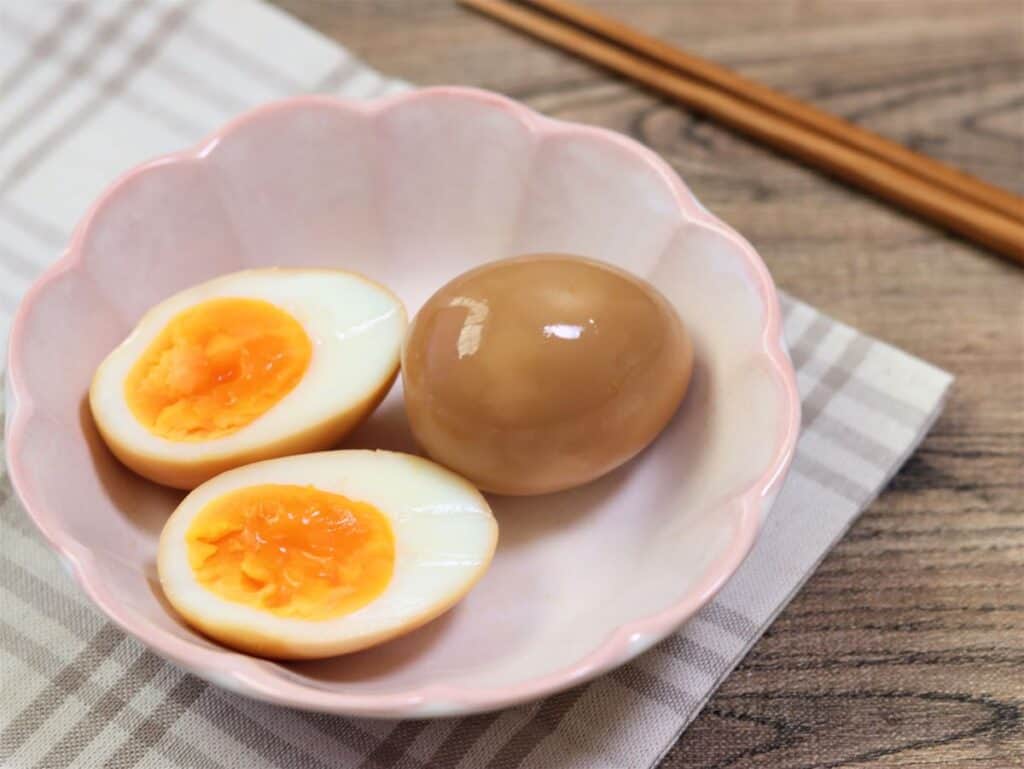
📋Step-by-step recipe
Ingredients
Instructions
🕒 Total: 2 hrs 20 mins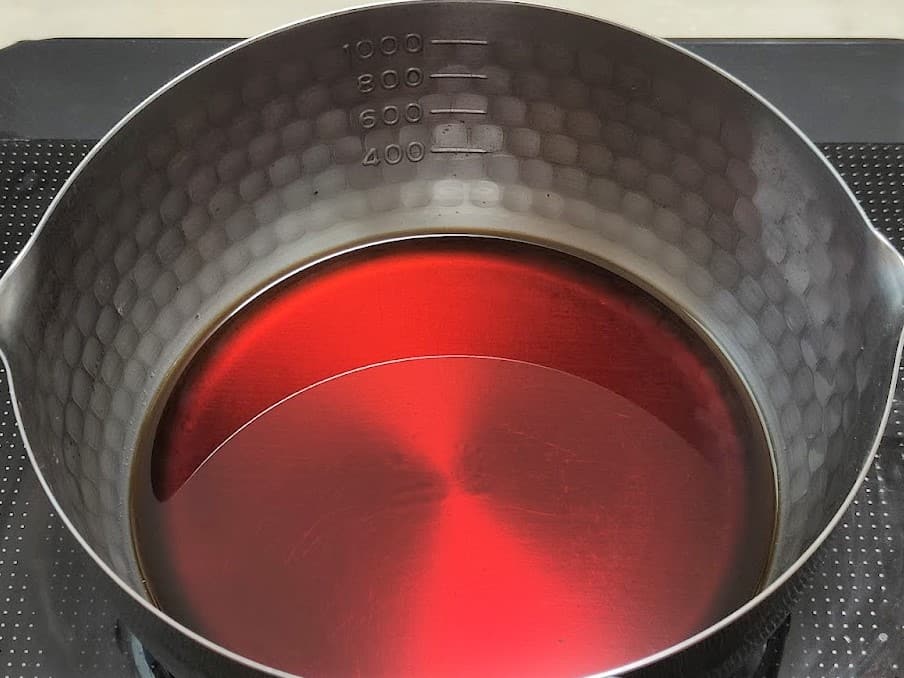
Step 1
Mix the seasonings (sake, mirin, sugar, and soy sauce) in a small pot and heat it over medium heat. Once it starts boiling, let it simmer for about 30 seconds to cook off the alcohol, then remove it from the heat. Let the mixture cool down.
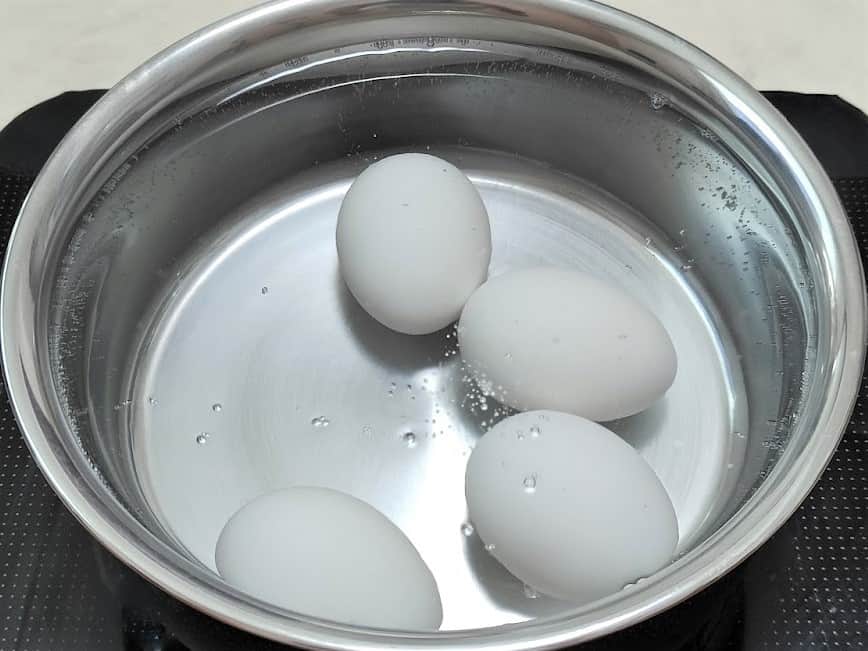
Step 2
Fill a large pot with plenty of water and bring it to a boil. Once boiling, reduce the heat to medium and carefully lower the eggs, straight from the refrigerator, into the pot one at a time using a slotted spoon or ladle. Let them cook for 7 minutes for a soft-boiled consistency, or adjust the time to your preference.
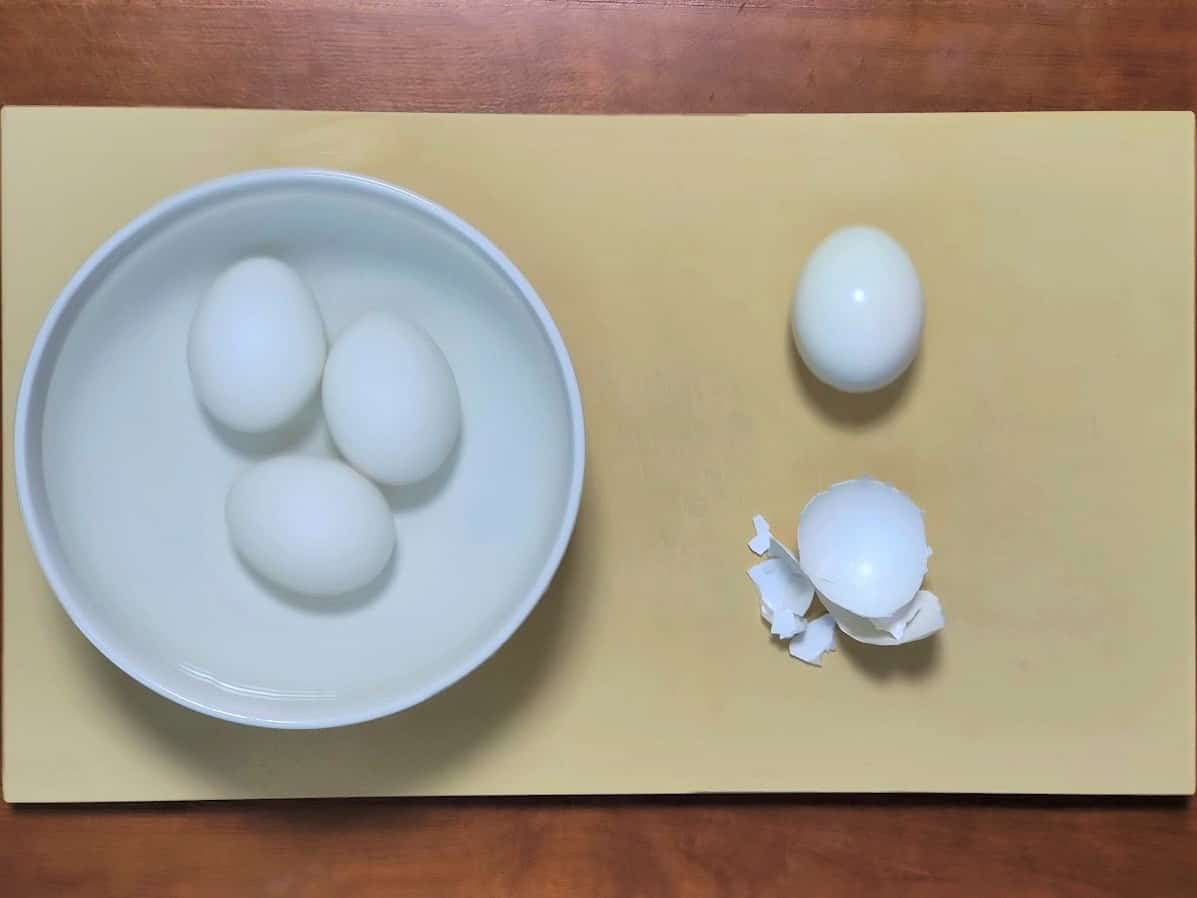
Step 3
After cooking, immediately cool the eggs in an ice bath or under running water to minimize residual heat. Then, peel off the shells.
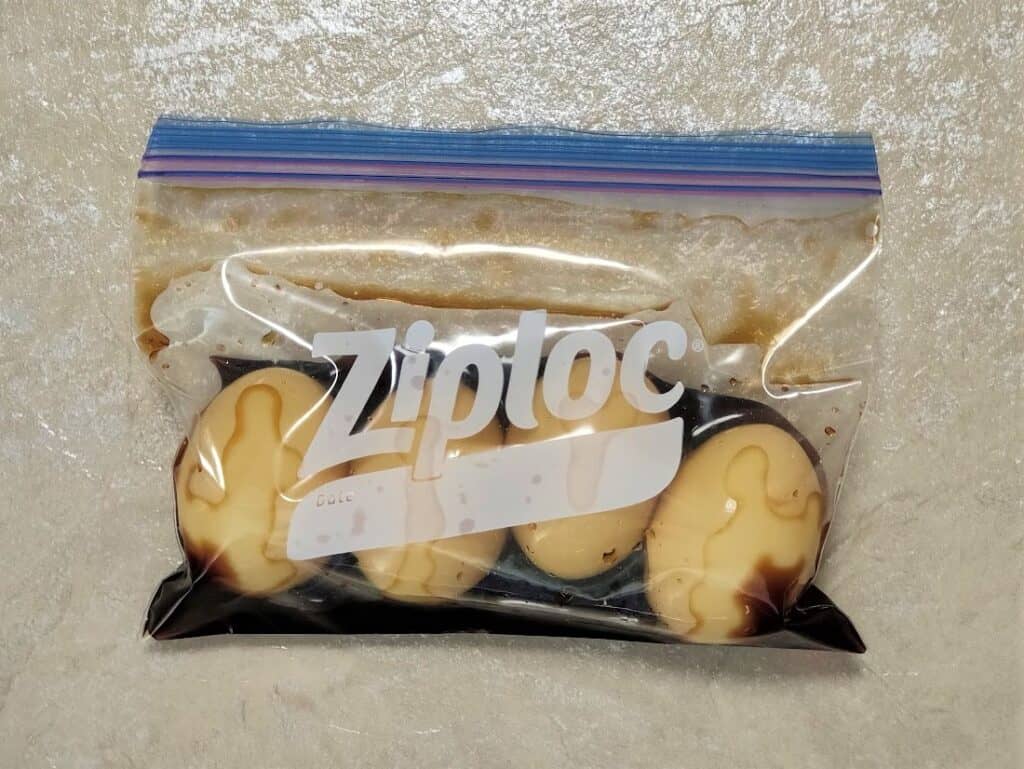
Step 4
Place the peeled eggs and the seasoning mixture in a Ziploc bag and seal it, removing as much air as possible. Let them sit in the refrigerator for at least 2 hours. (The longer you let them soak, the stronger the flavor will be.)
To store
You can store it in the refrigerator for up to 2 days. If it is hard-boiled, it can be kept for up to 5 days.
Cooking tips
- If you let the eggs come to room temperature before boiling them, you should reduce the boiling time by 30 seconds to a minute (this can vary depending on the room temperature). In this case, you will need to wait until the eggs reach room temperature, but the likelihood of them cracking during boiling will be reduced.
- It is recommended to add the eggs after the water has come to a boil. When you place the eggs in room temperature water and then bring it to a boil, it becomes difficult to determine the cooking time to achieve a soft-boiled consistency. However, this isn't an issue if you are making hard-boiled eggs.
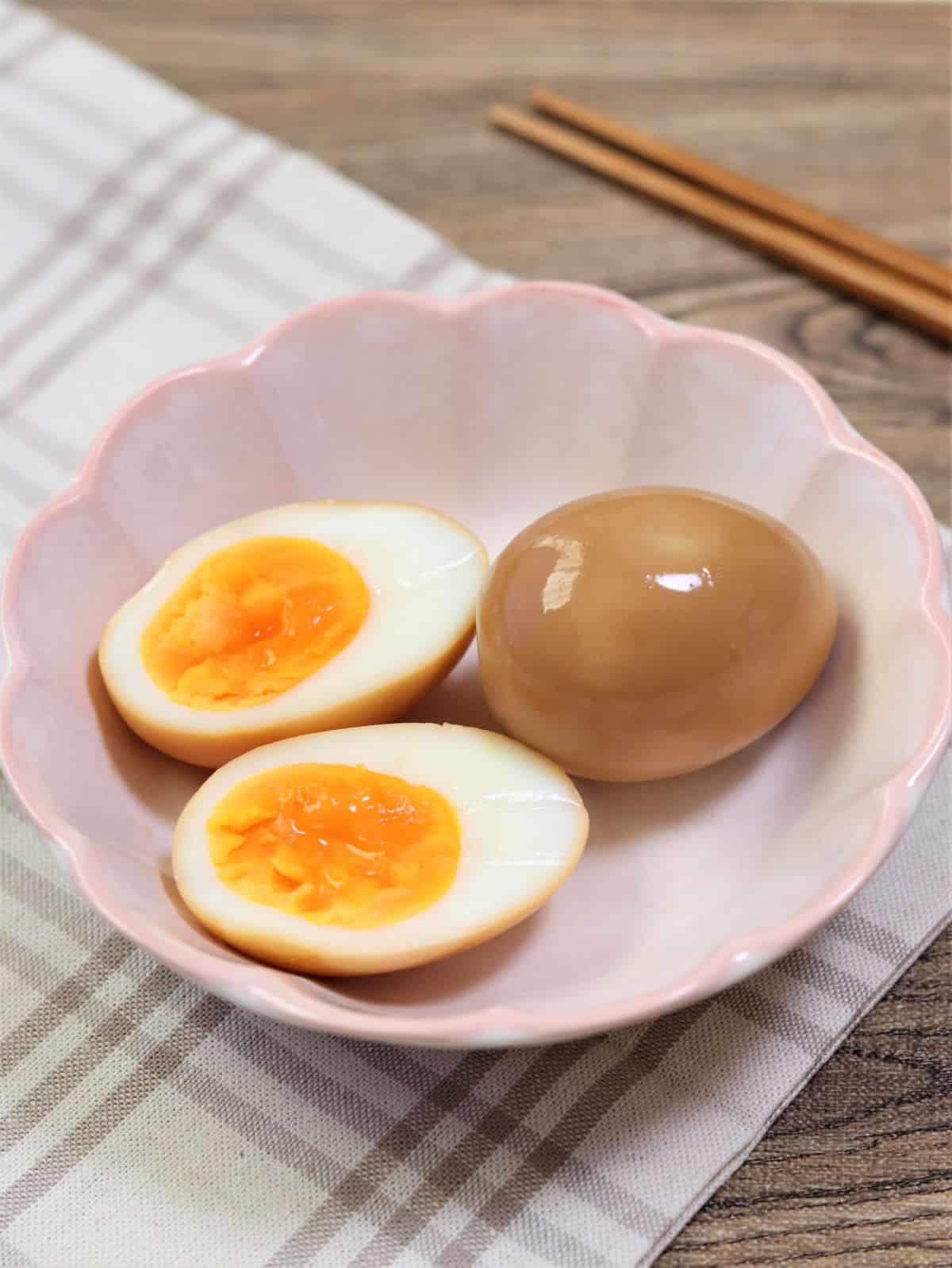
If you try this recipe, I’d love to hear what you think. Please consider leaving a review and star rating in the comments below. If you enjoyed it, I’d really appreciate it if you shared it with your friends.
More egg recipes you'll probably love
FAQ
It is possible to reuse the marinade by reheating it when making a new batch of nitamago, but it is not recommended. Once the eggs have been soaked, the marinade develops a distinctive eggy smell. For this reason, I also don’t recommend using the seasoned liquid to flavor other dishes.
Recipe card
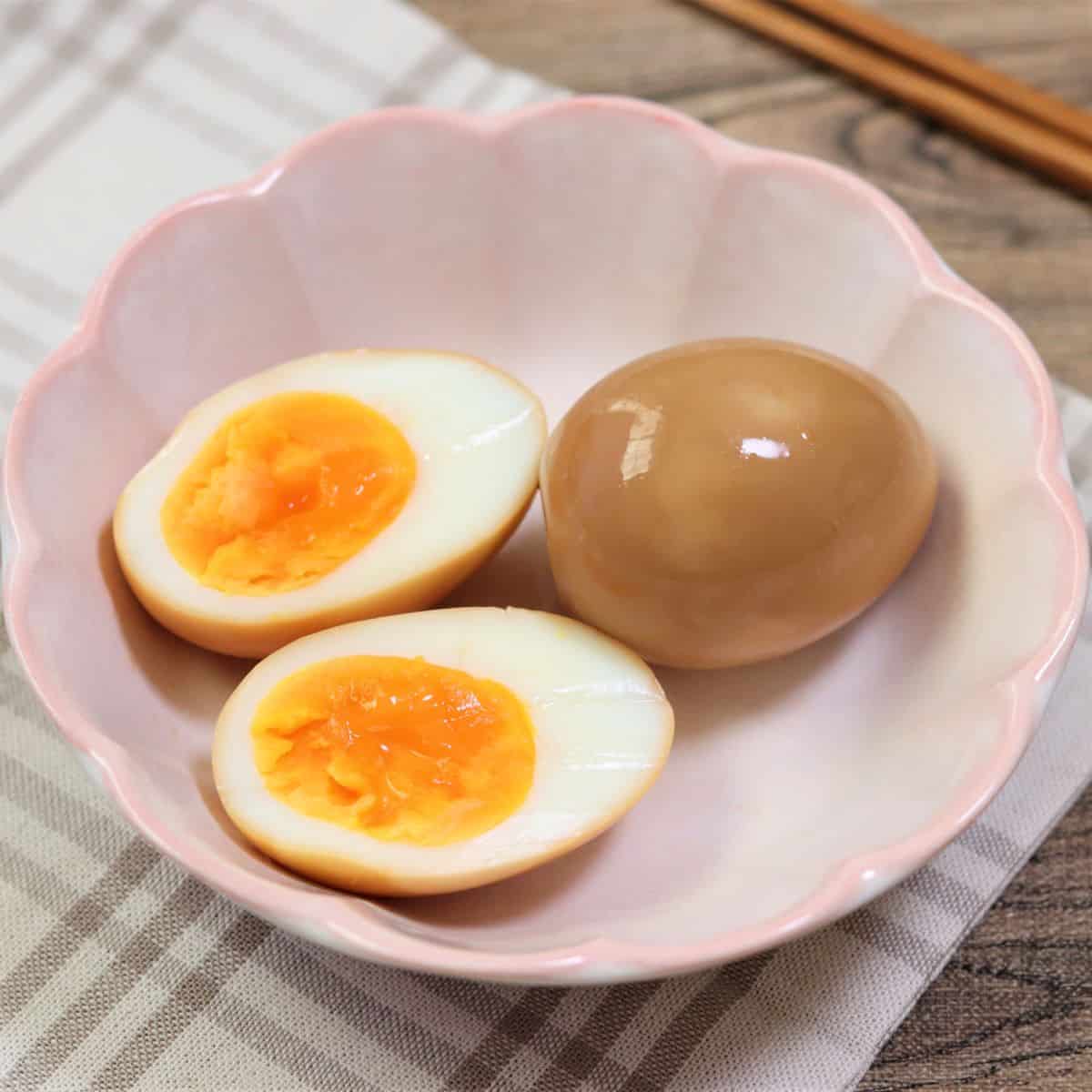
Nitamago (Japanese Seasoned Boiled Eggs)
Ingredients
- 4 eggs
Seasonings:
- 2 Tbsp sake
- 2 Tbsp mirin
- ½ Tbsp sugar
- 3 Tbsp soy sauce
Instructions
- Mix the seasonings (sake, mirin, sugar, and soy sauce) in a small pot and heat it over medium heat. Once it starts boiling, let it simmer for about 30 seconds to cook off the alcohol, then remove it from the heat. Let the mixture cool down.
- Fill a large pot with plenty of water and bring it to a boil. Once boiling, reduce the heat to medium and carefully lower the eggs, straight from the refrigerator, into the pot one at a time using a slotted spoon or ladle. Let them cook for 7 minutes for a soft-boiled consistency, or adjust the time to your preference.
- After cooking, immediately cool the eggs in an ice bath or under running water to minimize residual heat. Then, peel off the shells.
- Place the peeled eggs and the seasoning mixture in a Ziploc bag and seal it, removing as much air as possible. Let them sit in the refrigerator for at least 2 hours. (The longer you let them soak, the stronger the flavor will be.)
Notes
- You can store it in the refrigerator for up to 2 days. If it is hard-boiled, it can be kept for up to 5 days.

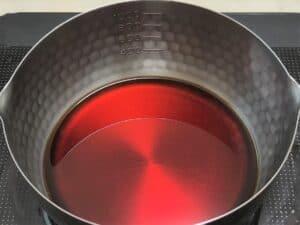
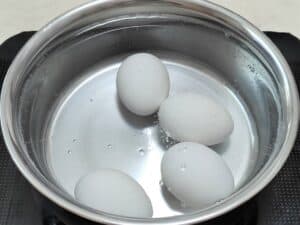
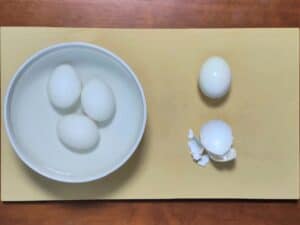




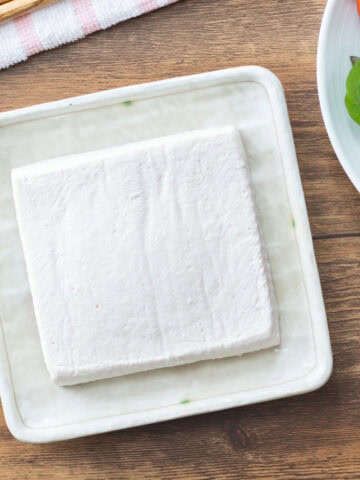
Leave a Rating and a Comment